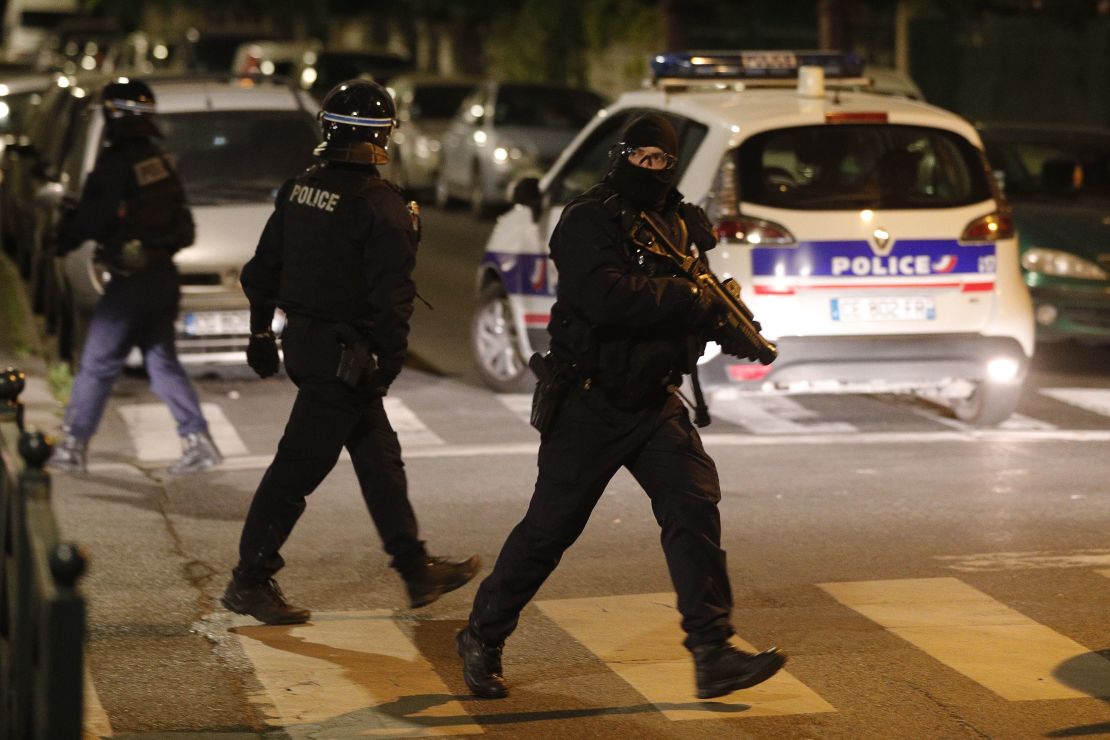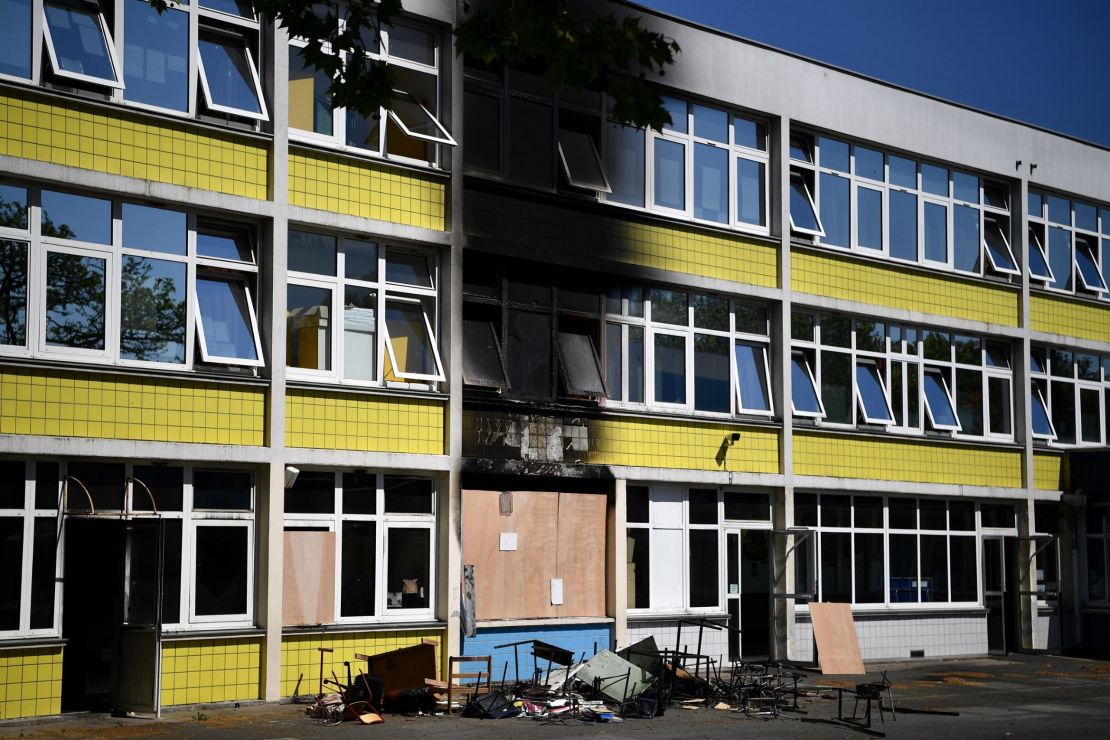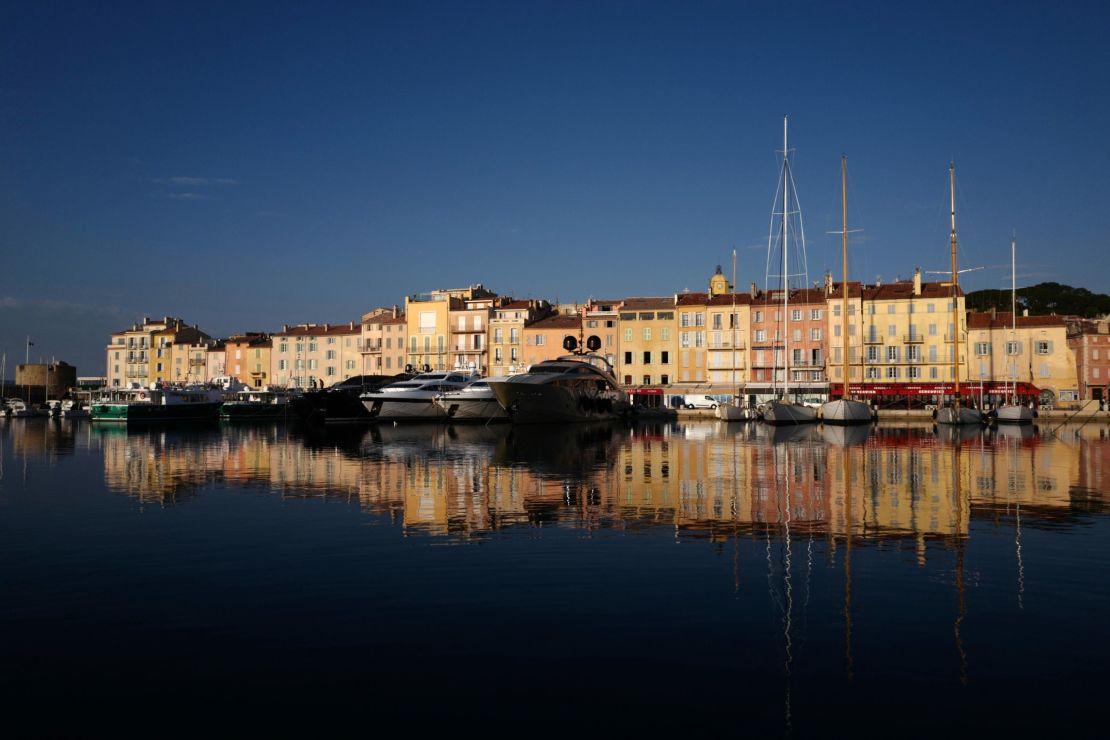While billionaires isolate themselves at luxurious hideaways on the Mediterranean during the coronavirus outbreak, residents in deprived and crowded areas of France are now facing a surge in deaths, along withunrest on the streets.
Hostilities erupted this week in Paris’ northern banlieues (or suburbs) following accusations of police brutality and racism during the coronavirus outbreak. Footage on social media appeared to show cars and trash cans set alight on roads, protesters hurling firecrackers and police racing to control the crowds.
The lockdown in France has had very different consequences for different sections of society since it was announced on March 17. The country’sban on all non-essential business until May 11, along with a requirement for a permission slip to venture outside, has had the harshest impact on people living in poorer, more densely populated neighborhoods, according to an op-ed from several activist organizations and unions in Mediapart on Friday.
The associations – including ATTAC (Association for the Taxation of financial Transactions and Aid to Citizens) – wrote that people in working class neighborhoods were on the front lines as essential workers. “Yet social inequalities, already glaring, are reinforced by the management of the coronavirus and will explode with the economic and social crisis to come.”
In stark contrast, wealthy residents at one of the country’s most exclusive gated communities on the French Riviera have been embroiled in controversy after it emerged that some had access to antibody testing, despite the strain on hospitals and nursing homes across the country.

Tensions flare in Parisian suburbs
The tensions in Paris’s northern suburbs flared up after an incident last Saturday night, when a motorcyclist, who is of a minority ethnicity,in the Villeneuve-la-Garenne banlieue broke his leg after police opened a car door in his path. Police said in a press release that the incident was an accident that occurred as officers got out of the car to speak with the motorcyclist, claiming 50 people then targeted police with projectiles.
The motorcyclist’s lawyer, Stephane Gas, has asked for an investigation into the police’s behavior by the General Inspectorate of National Police (IGPN), telling CNN that the police’s characterization of the incident was “all upside-down.”
He said the officers had opened the car door “in the middle of the lane” without warning before the collision. “All I can do is ask questions,” he said.
In an area with a history of police brutality and anti-police riots – as well as the separate gilets jaunes (yellow vest) showdowns with the government over inequality – some believe the act was deliberate.
Video of the injured motorcyclist being tended to by police went viral, sparking several nights of violence that spread from Villeneuve-la-Garenne across the suburbs of Gennevilliers, Nanterre, Aulnay-sous-Bois and Montreuil. On Tuesday, an elementary school in Gennevilliers was set on fire, police confirmed.
French journalist and activist Taha Bouhafs, who posted videos of the first clashes with the police in Villeneuve-la-Garenne on social media, told CNN on Monday: “Villeneuve-la-Garenne was a symbolic moment.
“People can see the double standards enacted during the confinement. All these images of people walking in the streets in Paris, unbothered by the police. All these images of police brutality in the suburbs.”

Bouhafs said the lockdown has taken a far harsher toll on working class families in the banlieues than on middle-class French households. “Confinement is not experienced in the same way by everyone,” he said. “We don’t all have terraces with neighbors playing the accordion.
“In the suburbs there are large families in low-rent housing with eight people or more … These people are cashiers, delivery men, postmen, people who don’t have the privilege of working from home.”
The coronavirus has also had an immediate and dramatic impact on deaths in these neighborhoods. The Seine-Saint-Denis area, which is next to Villeneuve-la-Garenne, saw an increase in mortality of 295% in the week of March 30 to April 5 compared with the number usually expected at this time of year, according to France’s National Institute of Statistics. The Hauts-de-Seine, where Villeneuve-la-Garenne is located, saw a 255% rise.
By comparison, the increase in deaths was 174% in Paris and 61% in France as a whole over the same period.
There have now been more than 120,000 cases and more than 22,000 deaths in France.
Interior Minister Castaner told the Senate on Wednesday that the authorities had coordinated operations every evening for the past few weeks in “sensitive neighborhoods” in Seine-Saint-Denis. He said there had been 220,000 checks and 38,000 fines in these areas – “about twice the national average in terms of police controls.”
Castaner said in the Senate that since Saturday there had been “ambushes” on police, which he condemned “in the strongest possible terms.”
Earlier in April, he told Le Parisien newspaper that confinement rules were “largely respected” in the suburbs, adding: “I’ve asked for controls to be applied with good judgment and restraint rather than for special treatment.”
“Have no doubt: we are ensuring that containment is respected everywhere in France, and wherever our security forces are questioned and provoked. We owe them protection, we do so and we must punish this in the strongest possible way,” he added to the Senate.
The Open Society Justice Initiative was among 20 organizations that signed an open letter in March, before the clashes began, calling on Castaner and the Director General of the National Police, Frédéric Veaux , to ensure that police checks carried out during Covid-19 containment measures do not use excessive, violent, or discriminatory force.
The initiative’s research has shown a history of discriminatory police checks based on ethnic origin in France. Its 2009 study of Paris found that people perceived to be black were overall six times more likely than people perceived as white to be stopped by police and people perceived to be Arab were 7.6 times more likely than people seen as white to be stopped.
Wealthy enclave embroiled in bitter row
Calls to support disadvantaged groups in the suburbs of Paris came as another coronavirus row unfolded on the other side of the country, in one of the most privileged enclaves of Saint-Tropez, the star-studded French Riviera playground of the rich and famous.
A private clinic located in the exclusive enclave of Les Parcs Des St-Tropez has performed screening tests for coronavirus on the inhabitants, it was claimed last week in local newspaper Var-Matin. The St-Tropez mayor confirmed that 60 serology tests had been performed. Serological tests analyze a blood sample to see if the individual has developed antibodies against coronavirus.
This came after French Prime Minister Edouard Philippe on April 2 said there was concern over limited stocks of some drugs as coronavirus diagnostic testing in France hovered just above 20,000 a day. Diagnostic, or PCR, tests are different to the serological tests, however. Diagnostic tests show if you currently have the coronavirus, serological tests show if you have previously had it.
CNN has contacted Les Parcs’ association president, Jean-Louis Oger, but has not received a response.
He told the Washington Post that the medical unit had only conducted blood tests for a clinical trial that his company is running to determine immunity levels in people who have had the virus and said it had not done any nasal tests to determine if someone is sick. He promised to offer immunity testing to St-Tropez residents after the stay-at-home order was lifted if the trial is successful.
One local told the Post that people in St-Tropez were “furious” that residents of the high-end estate, where some mansions are worth tens of millions of dollars, had access to antibody tests while regional hospitals were struggling and work was still being done to expand testing in nursing homes.

Saint-Tropez Mayor Jean-Pierre Tuveri said in a press release that there was a medical center but reports of Covid-19 testing for rich residents were “erroneous.” He said the tests that did take place were free trial antibody tests for a laboratory, which would need to be authorized for marketing and public use through the non-profit foundation Institut Pasteur.
Tuveri said there was “no way, since this test has not yet been validated, it could have been offered to the nursing home’s staff, to residents and even less to the population of Saint-Tropez.”
Aurélie Perthuison, press officer for Institut Pasteur, told CNN it was “not aware of the use of tests among the inhabitants of this city” and was ” not involved and was mistakenly quoted in a press release.”
Perthuison said that no industrial serological test had been validated by the Ministry of Health. “As such, it is impossible for a private laboratory to carry out live tests on a population,” she said.
She said that “all seroprevalence studies must be conducted in a formal setting” with oversight. “At present, only one seroprevalence study has been finalized, and it was conducted in Crépy-en-Valois, by our teams in conjunction with the French health authorities.”
A spokeswomanfor the Regional Health Agency (ARS) for Provence-Alpes-C?te d’Azur said: “The ARS is looking into the matter. We were not aware of this testing operation before the publication in the press.”
Whatever the case in St.-Tropez, the rising anger seen on the streets of Paris shows just how the pandemic is exacerbating inequalities, according to activists and health professionals including Abdelaali El Badaoui, nurse and founder of the Banlieues Santé association, who lives in the city’s northern suburbs.
“As health professionals working in these areas, we foresaw that we would be hit particularly hard, given the multiple layers of social and health inequalities there,” El Badaoui, whose association works against medical and social inequalities in underprivileged areas, told CNN.
He said the organization had a plan in place for the health crisis in Seine-Saint-Denis as early as mid-March. It is distributing parcels of food and hygiene products as well as sharing videos it has made translating government and public health messages in 20 different languages.
El Badaoui said people who had lost their jobs were “really struggling” and the organization had seen some who had not eaten for a week. “People are not realizing it yet, but there is going to be a crisis like we’ve never seen before,” he said.
Others had stopped getting essential medical treatments because they were frightened to leave home or did not know how to contact health services.
“Not everyone is equal in front of this health crisis. And everyone should be,” he said.
“Coronavirus did not create the social crisis, coronavirus simply showed the level of misery that some people are living in right now. I think people should take it as a lesson, and remember it in order to do better in the future.
“Coronavirus should be an opportunity to change the way we engage with people who face inequalities on a daily basis.”
Benjamin Berteau and Barbara Wojazer reported from Paris, Emma Reynolds wrote in London.

